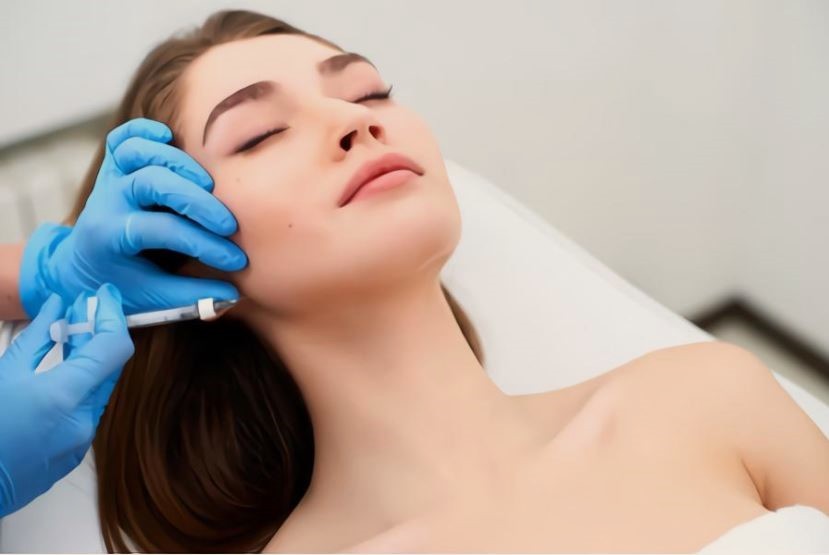Wide Jaw/Masseter Muscle
Arrange a Consultation
A pain in the jaw can mean only one thing – masseter muscle pain. A masseter muscle disorder creates facial pain, chewing difficulties and an increase of pain when eating.
Our muscle relaxant Botox Birmingham injections for masseters are the ultimate solution to relieve any kind of jaw muscle throbbing or pain.
If you’re also looking to reduce wrinkles with a completely painless jab that will help you roll back the years. Call today 0121 514 2385 for a free consultation in our Birmingham practice to discover if our facial aesthetics are right for you.
What Does Botox In Masseter Do
Botox is injected into the masseter muscle to relax it. This can be done to improve the appearance of the jaw line. The masseter muscle tightens the jaw and may contribute to its fullness. Botox injections in this area are used to soften the appearance of the jaw line.
Is it important?
The masseter muscle is located in the lower part of the face. It is used for chewing. The action of this muscle compresses the jaw and closes the jaw. Botox in this muscle does not cause you to lose your ability to chew, but it does prevent your ability to clench or grind your teeth. You can still use your masseter when chewing food, but only if you do not clench or grind your teeth. You will have to work harder at chewing food that requires a lot of chewing, such as steak or hard foods.
The average dose is 10-15 units injected into each side of the lower jaw (the mandible). The effects last about 3-6 months (depending on how much you clench your teeth).
Most patients with Bruxism (teeth grinding) suffer from pain in their masseter muscles. This is due to the fact that Bruxism is a stress-related habit, and the jaw muscles are subjected to a lot of stress. Many people, especially women, suffer from bruxism, which is a bad habit of grinding the teeth.
The masseter muscle can be weakened also by aging or by smoking. The masseter muscle becomes weak when it doesn’t get enough blood and oxygen. The oxygen helps make energy for muscles to work with. When muscles don’t have enough energy, they get weak and don’t work well anymore.
Because the masseter is just under the skin, it is relatively easy to inject botulinum toxin into it. And when you do that, the muscle will weaken and become sore less easily. In principle that might sound like a good idea for treating TMJ pain also.
If you are interested in preventing TMJ pain, I recommend the following steps:
- Learn to release your masseter muscle. It is your jaw’s clenching muscle, and it is the first thing that goes into spasm or cramps when you grind your teeth or clench your jaw. So if you want to keep it flexible, learn to relax it voluntarily and then learn to use it less.
- Work on your breathing patterns. If you breathe through your mouth, learn how to make some of those breaths through your nose instead. This will lead to better breathing habits for sleep which will reduce some of the stress that leads to tension headaches, which will reduce headaches that trigger TMJ pain.
- If you have a job that involves a lot of talking, do exercises to support your neck and head so they don’t have so far to move up or down with each word. This will prevent neck strain from talking

Book a Free Skin Consultation
With me, Doctor Majid Shah at our Birmingham Clinic in the West Midlands. With over 4,000 successful skin treatments around the UK, I guarantee through innovative techniques you’ll get the results you want! look better, feel better, and live better.

You should not chew gum for at least three months. That means no chewing gum, no bubblegum, and no jaw exercises that would cause you to clench your jaws. For the first five days after the injection you should not drink anything hot or cold, like coffee or tea. You also cannot eat any food that is very fibrous and chewy (like raw carrots) and you must avoid crunchy foods like chips or crackers.
Infection: In rare cases, the injection can go wrong and cause an infection. This is more likely to happen if the injection was not performed by a qualified professional, or if the patient has been putting pressure on the injection site. This will usually cause redness and pain around the injection site and can be treated with antibiotics.
Freak reaction: The Botox may cause a reaction in the form of excessive relaxation, which could lead to drooping of certain muscles and difficulty moving them. This is more likely to happen if the patient has not been correctly informed about the effects of Botox, or if they have received incorrect information from their doctor.
